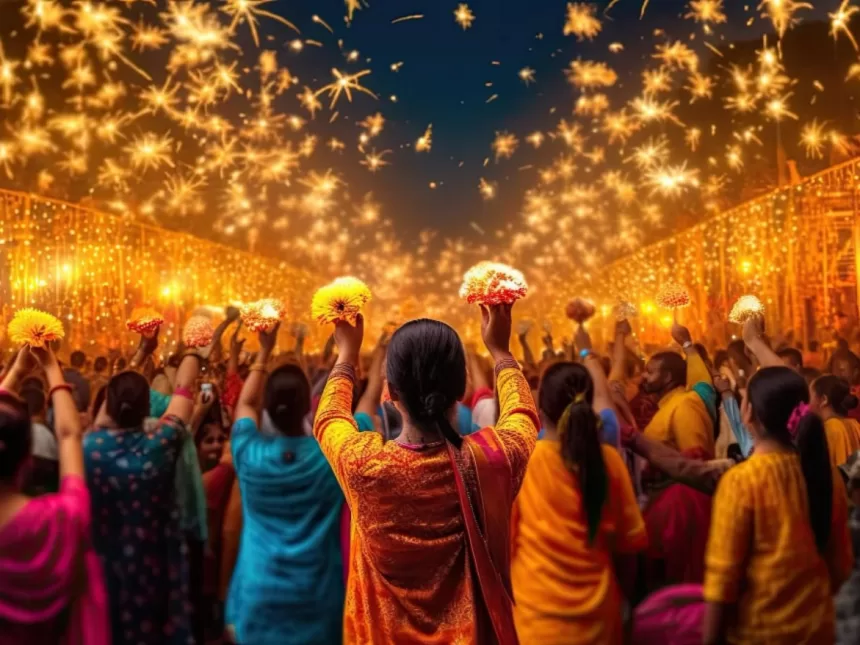Hindu festivals are an integral part of Indian culture, celebrated with immense fervor and devotion throughout the year. While these festivals hold significant religious and cultural importance, they also have a positive impact on general health.
The rituals, customs, and practices associated with Hindu festivals often promote physical and mental well-being. In this article, we will explore how Hindu festivals contribute to better health.
1. Stress Reduction Through Meditation and Prayer
Many Hindu festivals involve meditation and prayer as essential components. These practices help individuals manage stress and promote mental tranquility. For instance, during Diwali, people light lamps and offer prayers, which can have a calming effect on the mind. Reducing stress is crucial for maintaining good general health, as excessive stress is linked to various health problems, including heart disease and mental health issues.
2. Fasting and Detoxification
Fasting is a common practice during Hindu festivals like Navratri , Chhath Puja , Teej and Ekadashi. Fasting allows the digestive system to take a break and detoxify, which can have a positive impact on general health. It can help improve metabolism, aid in weight management, and promote detoxification of the body.
3. Physical Fitness and Celebratory Dance
Dance is an essential element of many Hindu festivals, such as Dandiya during Navratri or Garba during Navratri. Other regional Dance form during festivals like Bihu , Vaishakhi etc. These dances are not only enjoyable but also provide a fantastic workout, promoting physical fitness and stamina. Dancing is a fun way to maintain a healthy lifestyle and stay active.
4. Balanced Diet and Nutrition
During festivals, traditional dishes are prepared using a variety of ingredients, including grains, pulses, vegetables, and fruits. These dishes are often rich in essential nutrients and are prepared with an emphasis on balanced nutrition. Eating such meals can help maintain good general health by ensuring the body receives the necessary vitamins and minerals.
5. Community and Social Well-being
Hindu festivals often bring communities and families together. These gatherings foster social connections, which play a significant role in overall well-being. Strong social support systems are associated with lower stress levels and better mental health.
6. Environmental Awareness
Some Hindu festivals are centered around nature and environmental themes. For instance, Holi celebrates the arrival of spring and encourages the use of natural colors, muds. Meanwhile Festival Like Chhath promote around 100% organic way of celebration using utensils of Clay or Alloy and no significant use of plastic or other things. These festivals promote environmental awareness and a connection to nature, which can contribute to better health through improved air and water quality.
7. Acts of Charity and Compassion
Many Hindus engage in acts of charity and compassion during festivals. These acts, like feeding the poor or donating to those in need, not only serve a humanitarian purpose but also evoke feelings of happiness and contentment, which are linked to improved mental health by providing mental satisfaction.
Conclusion
Hindu festivals offer much more than just religious and cultural significance; they also have a profound positive impact on general health. The combination of prayer and meditation, balanced nutrition, physical activity, stress reduction, and social interactions make these festivals holistic in their approach to well-being. By actively participating in these festivals, individuals can not only celebrate their heritage but also contribute to their overall health and happiness.





